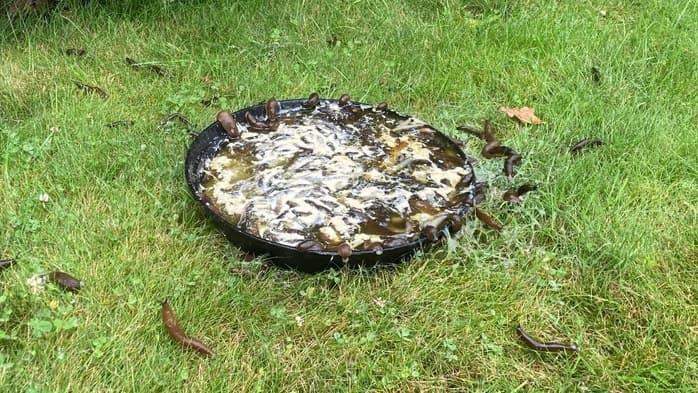Garden owners testify to an unusually large number of killer slugs this year. A massive, slimy invasion that eats everything in its path.
They move in rows towards the wife's crops, it's completely crazy, says Lenny Lämber on Orust, who can pick between 700 and 800 slugs per evening.
Lenny Lämber has a summer house on Orust and saw the invasive slug already in April. Since then, they have only become more and more.
It can be about 50-100 slugs when he goes out on the lawn, just near where he stands.
The volume this year beats all, there's as much as you want, he says.
"Grease that's called enough"
He and his wife spend 30 minutes to an hour every evening trying to get rid of the slugs. That it takes time doesn't seem to bother him particularly much, but the worst thing is that the crops have to give up their lives.
When there are three slugs on seven centimeters on a lettuce leaf, you don't get so hungry - and the slug slime, it's like grease that's called enough.
Ted von Proschwitz, curator at the Gothenburg Natural History Museum, confirms the picture of a real slug year. The rainy but warm spring is the main reason.
There have been fine conditions for the slugs to survive and thrive, says von Proschwitz.
Out with the headlamp
As soon as you see a killer slug in the spring, you should act if you want to keep the number down. Going out in the garden in the evening when the dew has settled is the best time, according to von Proschwitz.
Put on your headlamp and bring a sharp garden spade.
There are several ways to limit the number of slugs when they appear in the garden. Best is simply to kill them.
Kill the slugs by beheading them one centimeter from the head, I think that's the most effective method, says Ted von Proschwitz.
A method that Lenny Lämber on Orust has recently tested is to mix yeast, flour, sugar, and water in a container.
It works really well, I just emptied four containers with approximately 1,500 slugs, says Lenny.
Can't be eradicated
But the invasive slug species cannot be eradicated if the conditions continue to favor the slugs' life cycle. It's about keeping them in check, according to slug expert Ted von Proschwitz.
Lenny Lämber has realized that the enormous quantities are something he will have to expect even in the future.
The battle is probably already lost, now it's about keeping them away, he says.
Compost in a closed compost
Remove fungi and fallen fruit in the garden
Act early in the spring
Don't water the garden in the evening
Avoid: Dahlias, dandelions, berries, flowers with strong stems and flower crowns.






